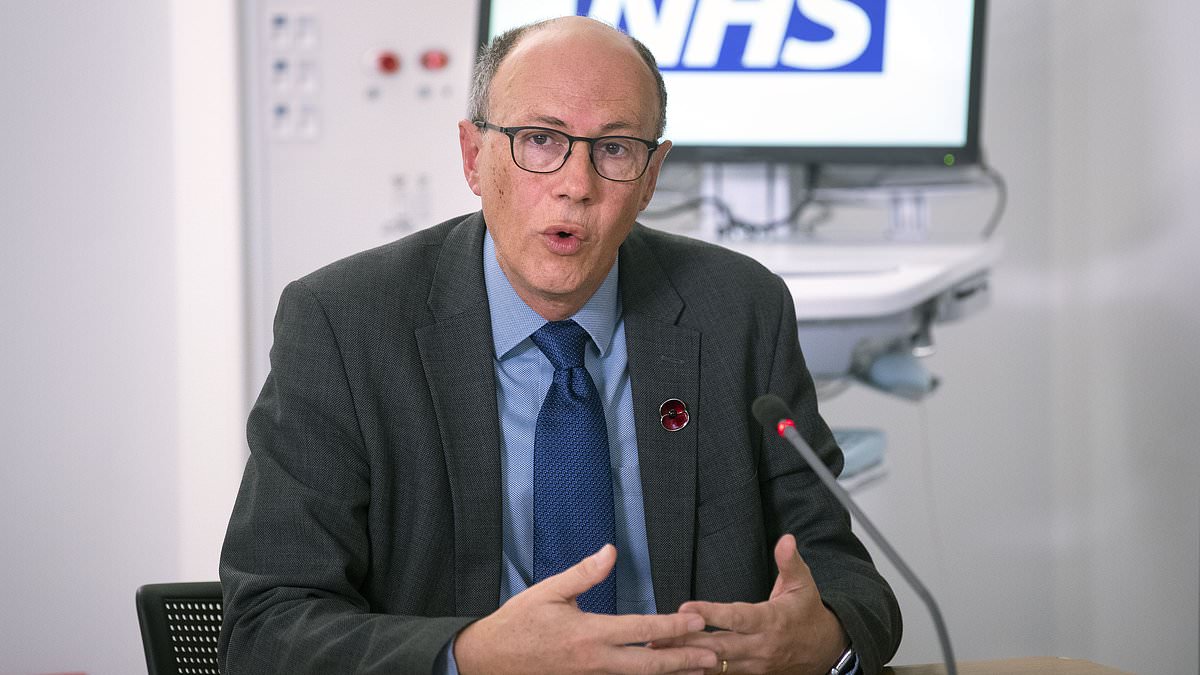Health chiefs today sounded the alarm over a startling rise in debilitating strokes among younger Brits.
Data shows more than 12,500 people in theirs 50s suffered the potentially fatal condition in 2023/24.
By comparison the figure stood at just over 8,000 in 2004/2005 — marking an increase of 55 per cent in two decades.
The trend far outpaces the 28 per cent rise across all ages over the same period.
Experts said the ‘alarming’ trends showed that the condition was not just a risk for the elderly, with the rise being fuelled by obesity, stress, poor diet and sedentary lifestyles.
It also comes amid a concerning trend of increasing rates of some types of the cancers, specifically breast, lung and bowel among younger people.
Health Secretary Wes Streeting, said: ‘These figures are shocking, and even more so given the causes of stroke are largely preventable, such as high blood pressure and a poor diet.
‘Prevention will always be better than cure. Not only because it means helping people to live well for longer, but also because a healthy workforce supports our growth mission too.’

Other – just as common – tell-tale signs of a looming stroke, often fall under the radar. These include sudden numbness on one side of the body, sudden vertigo and difficulty swallowing

Stroke symptoms are commonly remembered under this four-letter acronym, FAST. Patients experiencing a stroke can often have their face drop on one side, struggle to lift both arms and have slurred speech, while time is essential, as immediate treatment for a transient ischemic attack (TIA) or minor stroke can substantially slash the risk of a much deadlier major stroke
Strokes affect more than 100,000 Britons annually — one every five minutes — claiming 38,000 lives.
This makes it the UK’s fourth biggest killer and a leading cause of disability.
Almost 800,000 people in the US are struck down each year, causing 137,000 deaths.
The problem occurs when the blood supply to the brain is cut off, killing brain cells. The damage can lead to long-term disability and affect how people think and feel.
The most common cause is fatty deposits or a blood clot blocking arteries supplying the brain — known as ischaemic stroke.
This happens due to cardiovascular disease, when blood vessels become narrowed or blocked over time by plaques.
These are made of cholesterol, calcium and other substances that build up in the artery walls in a process known as atherosclerosis.
The other — called hemorrhagic strokes — occurs when a blood vessel bursts in the brain and starts to leak its contents into the organ.

Game of Thrones actress Emilia Clarke has repeatedly spoken about the lack of support young stroke survivors have. She suffered a brain haemorrhage at the age of just 24

Professor Sir Stephen Powis, NHS national medical director (pictured), said the figures show that strokes ‘are not just a risk for older people’ and that everyone should be aware of the symptoms
According to the fresh NHS England data, 12,533 Brits aged 50 to 59 had a stroke in 2023/24. It was 8,063 in 2004/05.
In total, there were 111,137 hospital admissions for strokes last year.
This was up 28 per cent on two decades earlier when 87,069 were recorded.
Stroke numbers also rose by 42 per cent among those aged 60 to 69, and by 25 per cent for 70 to 79 year olds.
Professor Sir Stephen Powis, NHS national medical director, said the figures show that strokes ‘are not just a risk for older people’ and that everyone should be aware of the symptoms.
He added: ‘There are likely to be a range of causes behind this alarming increase, but we know that lifestyle, and particularly obesity, poor diet and lack of exercise, are among common factors that can increase risk of stroke and have a significant impact on cardiovascular health for people of working age in their 50s and 60s.’
‘Not only is stroke one of the biggest killers in England, it can lead to life-changing impacts for so many other families.
‘Greater awareness of the need to act fast and dial 999, alongside other NHS interventions to support people to take control of their cardiovascular health, could help save and protect many more lives.’

Health Secretary Wes Streeting, said: ‘These figures are shocking, and even more so given the causes of stroke are largely preventable, such as high blood pressure and a poor diet’
Previous data released in 2018 showed that 38 per cent of those suffering a stroke in England in 2018 were middle aged (40 to 69), up from a third in 2008.
Without prompt treatment a stroke can result in death or long-term disabilities such as paralysis, memory loss and communication problems.
The NHS says rapid diagnosis and treatment is ‘critical’ as stoke victims may lose around 2million brain cells a minute, with delays contributing to greater harm and hampering recovery.
Earlier this month the health service launched its first major update to its ‘Act FAST’ stroke awareness campaign since 2009.
It encourages people to act immediately if anyone experiences one of the three common symptoms, including struggling to smile, struggling to raise an arm or slurring their words.
It follows research that found most people wrongly thought they should only make such a call if there were multiple symptoms.
In the past few years, NHS teams have rolled out new ways to find and treat more people with the major risk factors for cardiovascular health issues, including blood pressure checks in pharmacies for people over 40 and free blood pressure monitors for over 220,000 people.
Survival rates have also improved, thanks to medical advances such as the rollout of clot-busting drugs and networks to send patients directly to specialist units.









